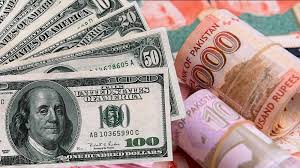Currency Exchange Pakistan
Currency exchange plays a crucial role in Pakistan’s economy, facilitating international trade, remittances, and personal travel. Whether you’re an individual traveler, a business owner, or someone receiving remittances from abroad, understanding the ins and outs of currency exchange Pakistan is essential. In this article, we will dive deep into the key aspects of the foreign exchange system in Pakistan, its regulations, and how you can get the best rates while avoiding common pitfalls.
Understanding Currency Exchange in Pakistan
Currency exchange refers to the conversion of one country’s currency into another. In Pakistan, this service is provided by banks, licensed exchange companies, and money changers authorized by the State Bank of Pakistan (SBP). The Pakistani Rupee (PKR) is the official currency, and its value fluctuates based on market demand, foreign reserves, and international trade dynamics.
The primary reasons people engage in currency exchange in Pakistan include:
- International travel: To obtain foreign currency for personal or business trips.
- Remittances: Converting foreign currency received from abroad.
- Business transactions: Settling international trade deals.
Top Currency Exchange Providers in Pakistan
1. Licensed Exchange Companies
Licensed exchange companies operate under the supervision of the SBP. They offer competitive rates, are reliable, and ensure compliance with legal regulations. Popular names include:
- Link Exchange: Known for offering transparent rates and quick service.
- HBL Currency Exchange: A subsidiary of HBL with branches nationwide.
- Dollar East: A trusted name for individual and corporate clients.
2. Banks
Major banks like UBL, MCB, and Standard Chartered provide currency exchange services. While they are secure and convenient, their rates may not always be as competitive as dedicated exchange companies.
3. Online Currency Exchange Platforms
With the rise of fintech solutions, online platforms now allow users to check rates and convert currency digitally. These platforms are gaining traction for their ease of use and transparency.
How to Get the Best Currency Exchange Rates in Pakistan
1. Monitor Exchange Rates Regularly
Exchange rates fluctuate daily, influenced by global economic trends and local monetary policies. Websites and apps offering real-time updates on PKR exchange rates can help you decide when to buy or sell.
2. Compare Rates Across Providers
Different providers have varying rates due to operational costs and market competition. Comparing rates at multiple sources, including banks and private companies, ensures you get the best deal.
3. Avoid Black Market Transactions
The black market may offer attractive rates but poses significant risks, including fraud and legal consequences. Always rely on licensed providers to avoid complications.
4. Leverage Digital Platforms
Digital platforms often offer better rates due to reduced overhead costs. Additionally, they provide the convenience of online transactions without the need for physical visits.
Factors Influencing Currency Exchange Rates in Pakistan
1. Economic Stability
Economic indicators such as inflation, GDP growth, and political stability heavily influence the PKR’s value against foreign currencies.
2. Supply and Demand
High demand for foreign currency, especially USD, during peak seasons like Hajj or academic admissions, often leads to fluctuations.
3. Global Trade Policies
Pakistan’s trade deficit and international agreements significantly impact exchange rates. Import-heavy periods can weaken the PKR, while strong exports bolster its value.
Step-by-Step Guide to Currency Exchange in Pakistan
Step 1: Identify Your Needs
Determine the amount and type of foreign currency required. For larger amounts, prior booking may be necessary with banks or exchange companies.
Step 2: Verify Exchange Rates
Check real-time rates online or via mobile apps to ensure transparency.
Step 3: Choose a Trusted Provider
Select a licensed exchange company or bank for secure transactions. Ensure the provider offers receipts to confirm the transaction’s legality.
Step 4: Complete the Transaction
Visit the selected provider with your identification documents, such as CNIC or passport, to comply with SBP regulations.
The Role of the State Bank of Pakistan in Currency Exchange
The State Bank of Pakistan (SBP) regulates all currency exchange activities to maintain financial stability and prevent illicit transactions. Key measures include:
- Setting upper and lower limits for exchange rates.
- Monitoring exchange companies for compliance.
- Introducing policies to curb black market activity.
The SBP also intervenes in the forex market during periods of excessive volatility, ensuring the PKR remains relatively stable.
Popular Foreign Currencies in Pakistan
1. US Dollar (USD)
The most commonly exchanged currency due to its global dominance in trade and remittances.
2. Saudi Riyal (SAR)
Highly in demand during the Hajj and Umrah seasons.
3. Euro (EUR) and British Pound (GBP)
These currencies are popular among travelers to Europe and the UK, as well as businesses involved in trade with these regions.
Tips for Safe Currency Exchange
- Always Use Licensed Providers: Ensures compliance with local laws and reduces fraud risk.
- Request a Receipt: Proof of transaction helps in case of disputes or audits.
- Avoid Last-Minute Exchanges: Exchange rates at airports or in emergencies are often less favorable.
- Stay Updated on SBP Policies: Familiarity with legal requirements avoids unnecessary hassles.
Conclusion
Navigating the world of currency exchange in Pakistan doesn’t have to be daunting. By understanding the market, comparing rates, and relying on trusted providers, you can ensure a seamless experience. Whether you’re dealing with personal travel funds, remittances, or corporate transactions, staying informed is key to maximizing your value.











1 Comment
Give a round of applause in the comments to show your appreciation!